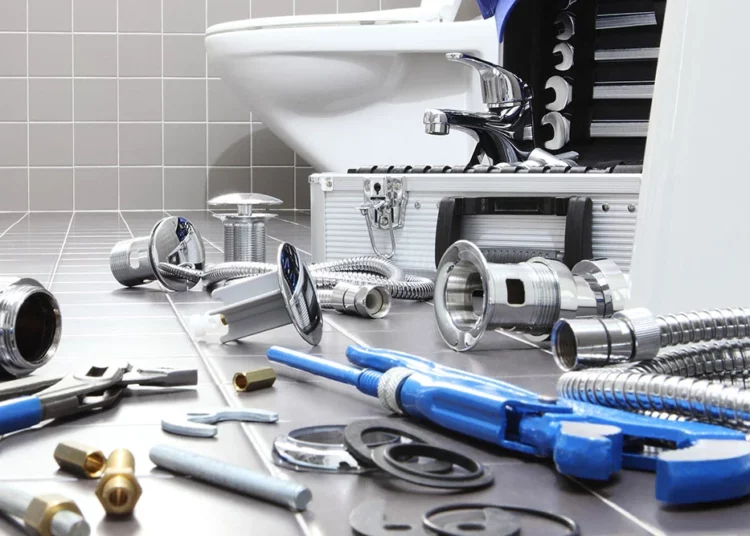Plumbing is an essential aspect of a building, which involves installing or repairing pipes and fittings in such a way that water is easily used and waste drained.
The plumbing space is so large that you can specialise in different areas. You can be a residential or industrial plumber. One can also work on areas like central heating, water recycling systems, and oil and gas-fired appliances.
Training
People do not hire unqualified plumbers. For you to be in this business, you have to gain some knowledge, either through enrolling in institutions that will give you that knowledge or taking up an apprenticeship role. With the right qualifications, one can render more services and ultimately make more money.
To get started, become an apprentice with a plumbing company. It can be for a period of six months to years depending on how fast you can learn. Alternatively, you can take courses online or enroll in community colleges or vocational schools.
Plumbing service can only be carried out by professionals and the way to become a professional is to get trained.
Equipment
Depending on the niche you want to cover, these are the basic materials that are needed. They include: Pipes and fittings, buckets to store fittings, pipe wrenches, reciprocating saw, circular saw, whole hog right angle drill, cordless screw gun, propane torch, cast iron pipe cutter, extension cords, pipe dope/teflon tape and trucks.
Start-Up Capital
Starting a business does not come cheap and will require money. As a plumber, your major cost will likely be investing in equipment. This depends on what sort of market you intend to serve, as cheap tools are unreliable and will deteriorate much faster than better-quality ones.
Your start-up capital should cover office set up, cost of labour, registration, licences, equipment, marketing and other logistics.
If you don’t have the finance to start this business you can attract investors with your business plan. Also, you can apply for loans from financial institutions or look for business partners who can finance the business while you bring expertise.
Hence, you will need a minimum of N1million to start with.
Profitability
According to Akinola Oshodi, a plumber, the plumbing business is profitable just like the global plumbing industry was projected to hit over $120 billion by 2023. He says the industry is equally lucrative in Nigeria, as an average plumber can make as high as N1 million, more or less, depending on the frequency of jobs.
Challenges
One of the challenges in this business is price volatility and poor material estimation. Another is difficulty in customer retention. When the customer is dissatisfied with the work done, the likelihood of hiring another plumbing company is higher. This makes customer retention a huge challenge for plumbing businesses.





